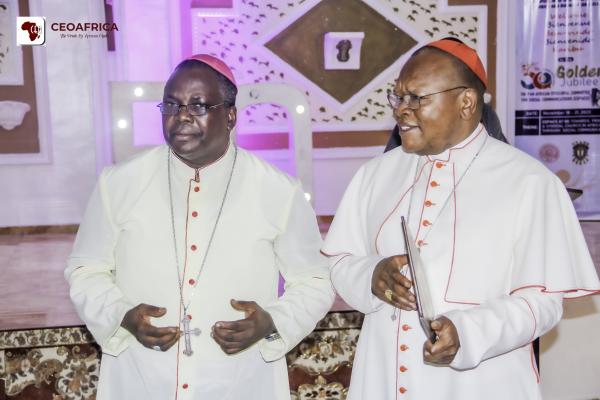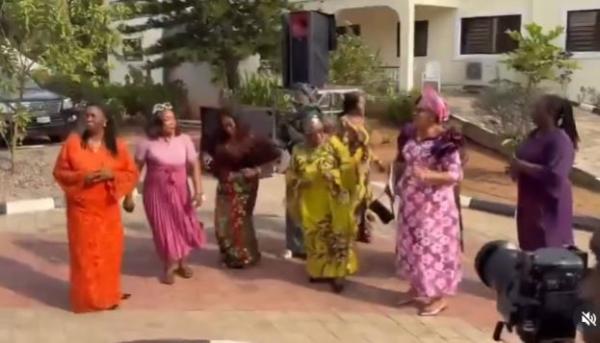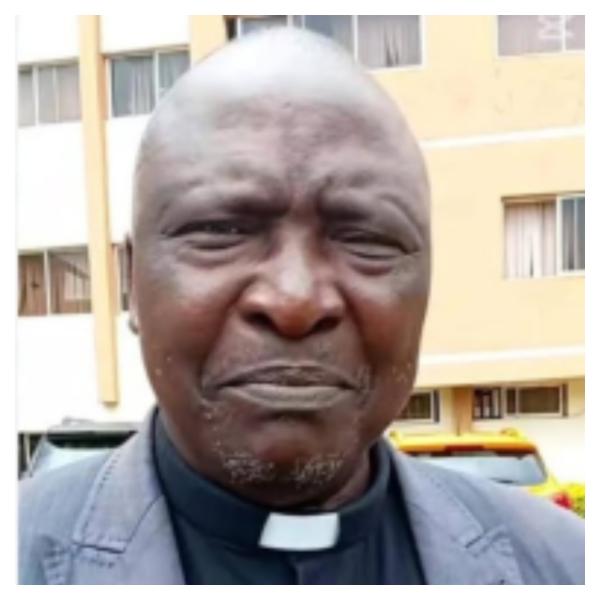
The Pan African Episcopal Committee for Social Communications (CEPACS) celebrated her 50th anniversary at Lumen Christi Retreat and Media Centre, Lagos, Nigeria in grand style.
The 2-day event which was held on 19 – 20 November, 2023, was attended by a total of over eighty (80) participants comprising of Cardinals, Archbishops, Bishops, Priests, Religious, regional officials of communication along with the local and foreign partners of the Symposium of Episcopal Conferences of Africa and Madagascar (SECAM), as well as lay communication experts.
The theme was “CEPACS at 50: Towards Promoting a Synodal Church in Africa through Social Communications”.
Founded in 1973 by the Symposium of Episcopal Conferences of Africa and Madagascar (SECAM) for the Church in Africa, CEPACS was given the mandate of promoting the use of modern means of mass communications as tools of evangelisation in the African Church.
A statement which was signed, by the President of CEPACS, who doubles as the Bishop of Oyo Diocese, Nigeria, Most Rev Emmanuel Badejo, and was made available by Fr Andrew Kaufa smm, AMECEA Social Communication Coordinator on behalf of CEPACS@50 Organizers, stated that the primary aims of the event are highlighted as follows: “giving thanks to God for all what He has enabled us achieve through social communications; conducting an evaluation and stock-taking of the work of CEPACS over the past 50 years:
“Appreciating our oneness in faith and, together, thanking God for this far He has brought us and CEPACS;
“Further appreciating the work of the Local Organizing Committee (LOC) and hospitality accorded by the Catholic Bishops Conference of Nigeria (CBCN) through the Archdiocese of Lagos for their commitment and hospitality that enabled the session succeed;
“Acknowledging the work and inputs from the CEPACS continental leadership under the guidance of His Eminence Fridolin Cardinal Ambongo the President of SECAM and Bishop Emmanuel Badejo the President of CEPACS, the regional bishop chairmen for social communication, and the leadership of CBCN and the entire coordination by the SECAM Secretariat;
“Further Acknowledging the support, solidarity and accompaniment from the Dicastery for Social Communications.
Also, the event resolved that the following are to strictly adhered to for the betterment of CEPACS:
“To enhance awareness and visibility of CEPACS, its mission, vision and objectives at all levels of the Church.in the African continent through the regional and national conferences; and all Ecclesial communities;
“To develop and strengthen CEPACS operational structures across the continent to facilitate engagement in a collective communication and synodal journey as well as grow together at the diocesan, national, regional, continental and universal levels;
“To form and capacity-build the CEPACS continental Committee and define its relationship with the regional and national episcopal conferences for the future;
“To develop a robust CEPACS long-term strategic plan with full operational framework outlining, among others, the structure and an organogram; operations principles, values and Theory of Change; definitive roles and place of the clergy, religious and lay communications experts in the Church; and collaboration and partnerships.
“To design and revive the regional communication structures and rekindle the interest and commitment of Bishops of the various conferences in Africa; to champion the ethical discourse in traditional, modern and contemporary Communication, especially in new media initiatives like artificial intelligence in relevant circles; and to convene and hold further sessions (physical or virtual) with the regional bodies’ teams of social communication in devising how these resolutions could be moved forward.
It was recommended that for the regional and national conferences, the following should be put in place:
“Prioritize specialized training for media personnel in the region and local diocese and Churches to enable the Gospel message get everywhere as well as receive a positive reception;
“Facilitate adoption of appropriate digital media use as platform for evangelizing particularly the younger generation who use online applications most of the time;
“Deliberately develop social communications strategies and approaches and encourage the Dioceses to apply them in empowering all ecclesial groups;
“Advance innovative ways of using social communication and media in addressing contemporary challenges that the Church faces and building an understanding among the faithful to respond to such with confidence and humility; and
“Support the resolutions that have been developed and adopted by the session.
“Continue collaboration with SECAM and other regional bodies to bring the synergies and the spirit of the Synodal church to reality; and
“Identify and facilitate learning spaces for CEPACS across the globe in areas of social communication in the Church
The following are recommended for SECAM;
“Facilitate sharing of the outcome of the session with and encourage all the Arch/Bishops and Superiors to invest in both human and material resources to effectively create a media field of evangelizers capable of influencing the environment and culture of modern times;
“Advance collaboration with other international communication church bodies across the continent, in particular SIGNIS and UCAP, for learning and broad use of social communication in addressing common issues facing the church of Christ;
“Strengthen the coordination of CEPACS at the Secretariat with defined working structures for ease of operations and implementation of the agreed areas of actions;
“Design resource mobilization strategy for CEPACS to facilitate effectiveness and efficiency of Social Communications;
“Learning from the regional associations of Catholic Bishops’ Conferences such as AMECEA and the Catholic Bishops Conference of Nigeria, design and incorporate World Communication Day/ Week as CEPACS annual programme, whose activities will be part of a framework of raising awareness, doing media literacy campaign; and fundraising for communication activities.
“Facilitate and support the realization of the resolutions made above





















